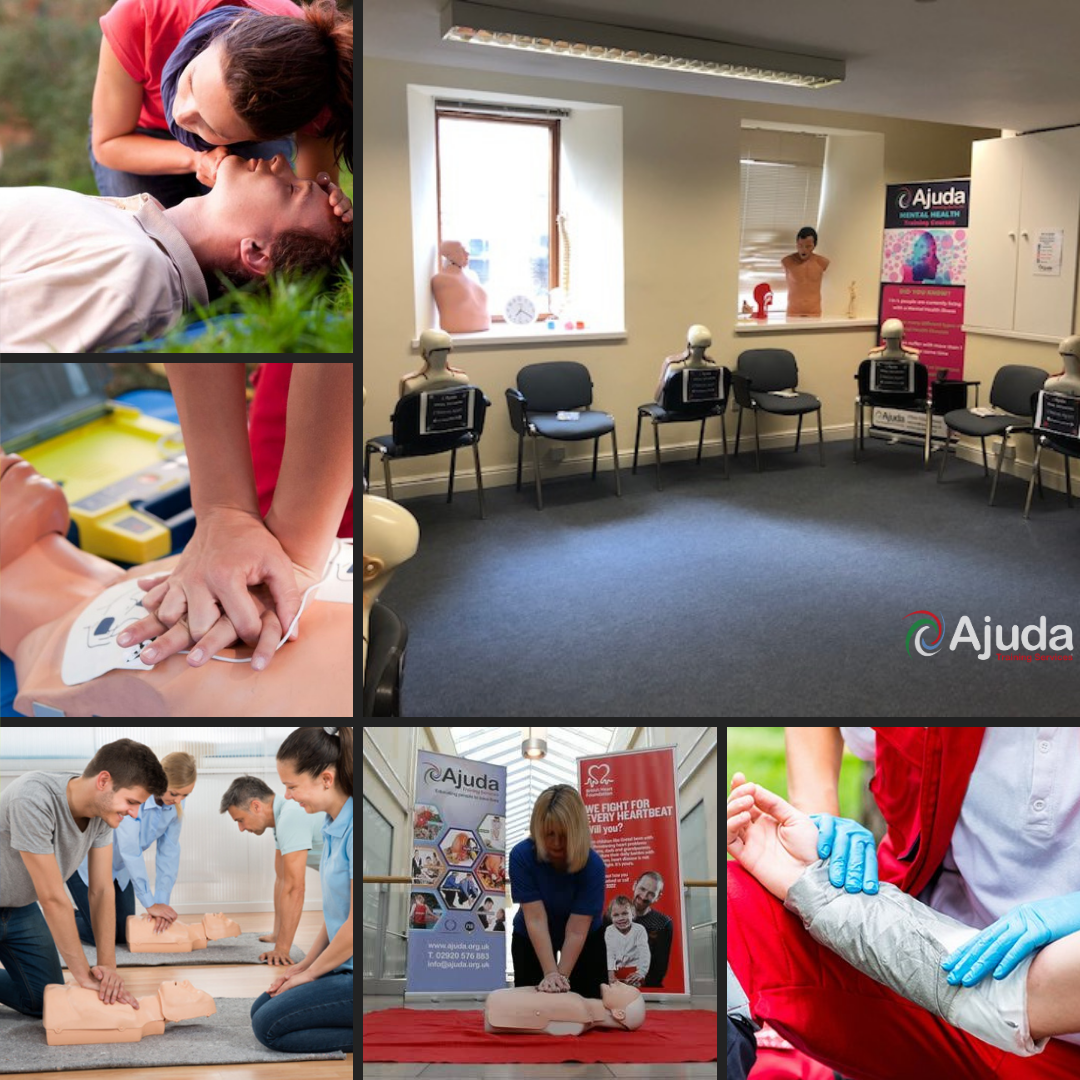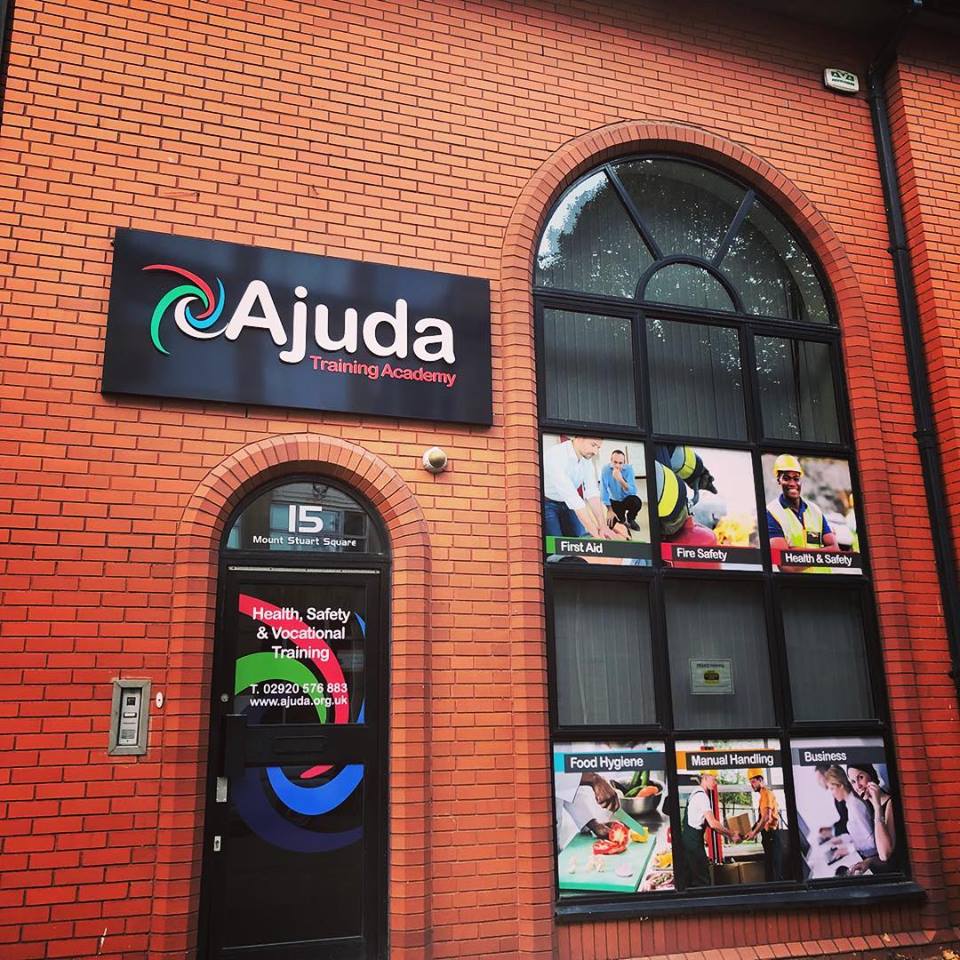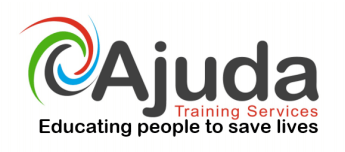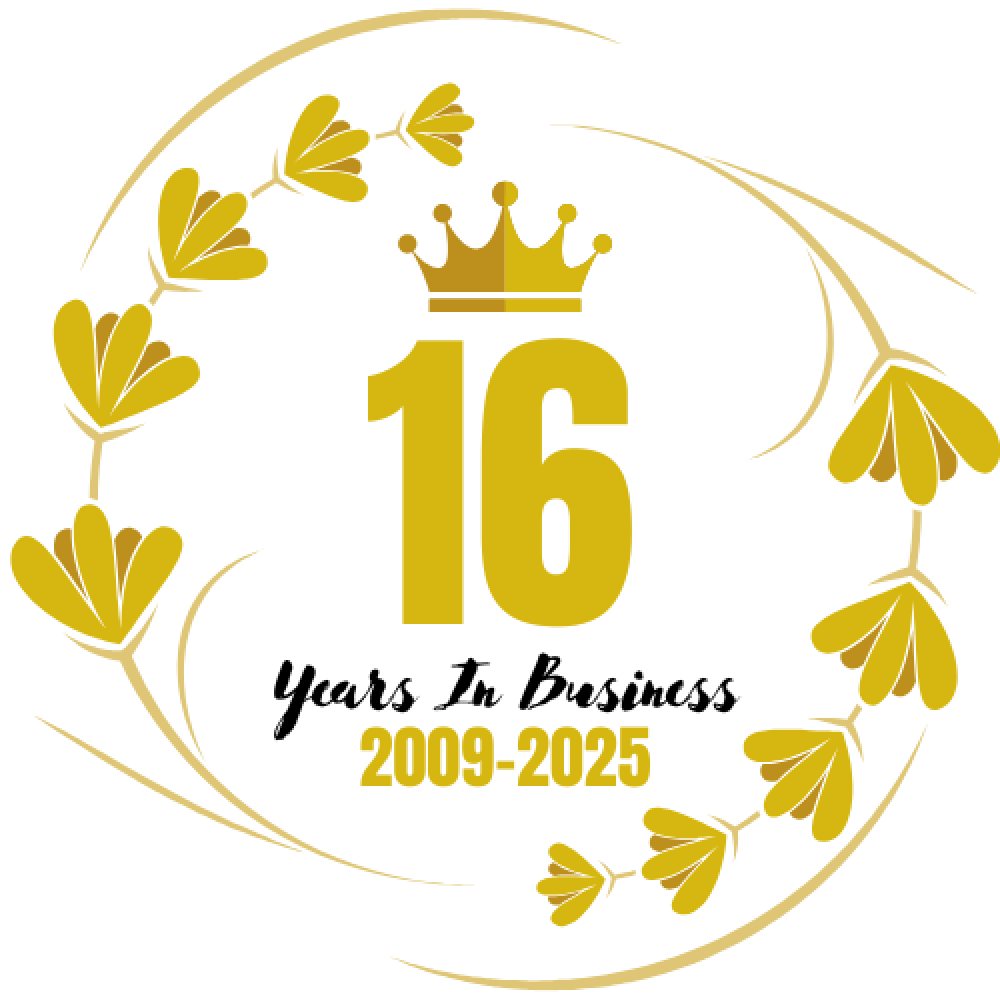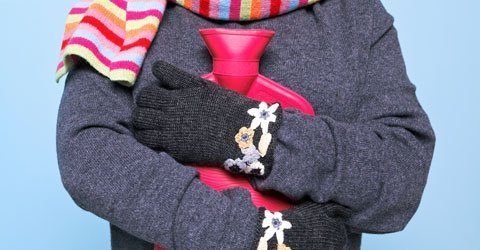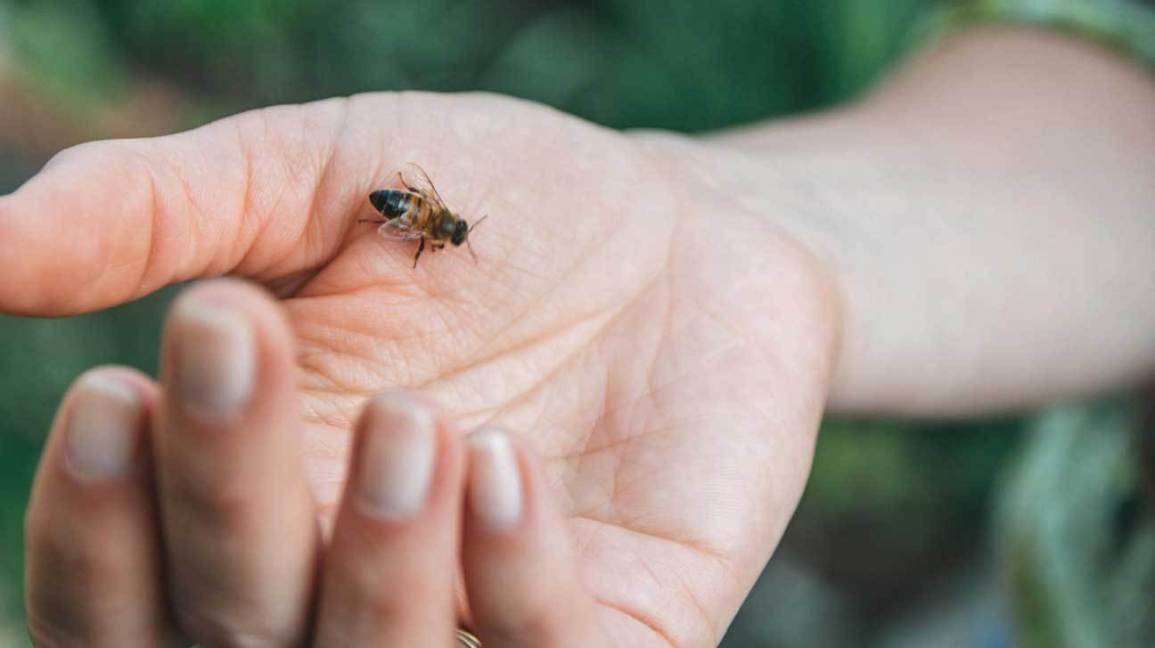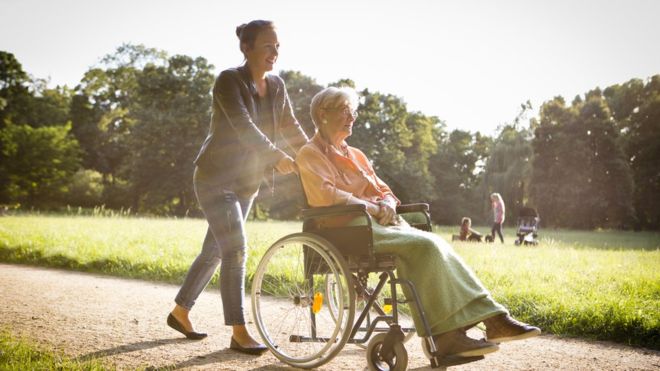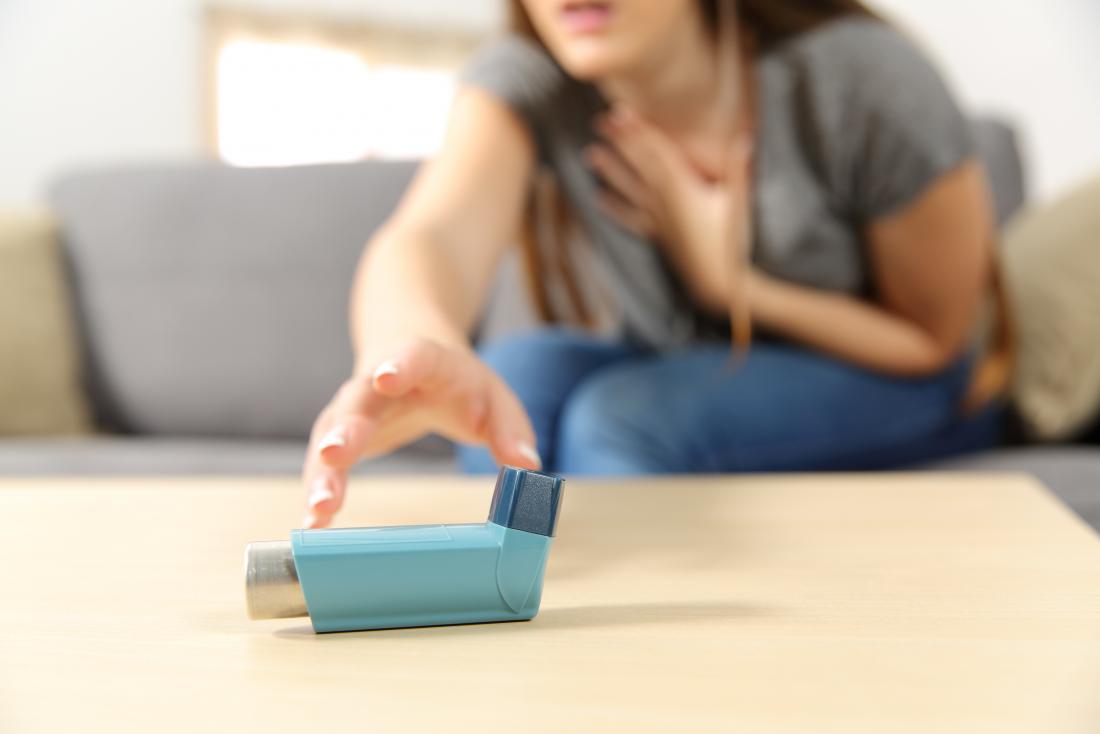St. David’s Day is the celebration of the patron saint of Wales, St. David. Patron saints are chosen to be special protectors of an area or country. England, Ireland and Scotland all have their own patron saints, and each have their own national day to celebrate them too. St. David was born in south-west Wales, near to a small city that is named after him today. Although no one knows exactly when he was born, many people guess that it was around the year 520 AD – however, some people believe that it was before this and that he lived for over 100 years! It was a time where the Welsh kings had their own little kingdoms and most people lived on their own farmland. They were mostly Christian, and there were lots of monasteries built where people would learn and pray. Nowadays, St. David’s Day is important to remember the life of St. David and everything he did for the country of Wales. People wear a daffodil or a leek around this day, as they are two important symbols of Wales. This is because the daffodil begins to bloom early in the year around this time, and the symbol of the leek is thought to have come from a group of Welsh soldiers many years ago who would wear leeks to be able to tell each other apart from the English soldiers. It is also believed that when St. David was alive, one of the only things he ate was leeks too.
Tip the flour, sugar, mixed spice, baking powder and a pinch of salt into a bowl. Then, with your fingers, rub in the butter and lard until crumbly. Mix in the currants. Work the egg into the mixture until you have soft dough, adding a splash of milk if it seems a little dry – it should be the same consistency as shortcrust pastry. Roll out the dough on a lightly floured work surface to the thickness of your little finger. Cut out rounds using a 6cm cutter, re-rolling any trimmings. Grease a flat griddle pan or heavy frying pan with lard, and place over a medium heat. Cook the Welsh cakes in batches, for about 3 mins each side, until golden brown, crisp and cooked through. Delicious served warm with butter and jam, or simply sprinkled with caster sugar. Cakes will stay fresh in a tin for 1 week.

Why do we celebrate St. David's Day?
Dydd Gŵyl Dewi Hapus or Happy St. David’s Day!
Why not make your own Traditional Welsh Cakes using our handy Recipe!!!

Ingredients
Method


Category: General News
Toasty Tips: How to keep warm through Winter
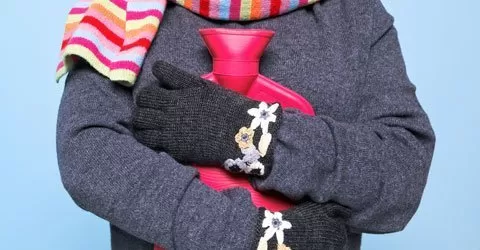
Cold Weather
With colder weather on the way, it’s really important to remain fit and healthy at this time of year to help your body fight off the common colds and viruses that are circulating. Eating well, wrapping up warm and carefully planning your journeys are simple ways stay safe during winter.
This blog highlights some of the first aid tips you may require over the winter months and potential hazards to look out for.
Keep warm
It is essential to maintain body heat during winter to avoid hypothermia.
Ideally, the temperature indoors should be at least 18 degrees. If you cannot afford to keep the heating on all winter (it can really add up!) then keep adding the layers, have accessible blankets around the house and hot water bottles which are particularly useful and a cost-effective way to keep extra warm indoors.
If you are venturing outside, ensure to wrap up warm and add layers such as, hats, scarves and gloves to prevent you from getting too cold.
Unfortunately, hypothermia is a huge danger at this time of year. The number of hypothermia deaths has doubled over the last five years. It is really important to learn the signs of hypothermia which include pale and cold skin, shallow breathing, a weak pulse and disorientation. If you suspect someone is suffering from hypothermia, then it is vital to encourage the to undertake the following:
– Slowly restore warmth and get indoors if they are not already
– Begin CPR if necessary
– If they are conscious, give them a warm drink such as
– Keep their body temperature up by wrapping them in blankets
Further tips for keeping warm and staying safe:
– Wear several light layers rather than one chunky layer
– Regular hot drinks and meals
– Be very careful around open fire
– Close the curtains after dark to keep away drafts
– Keep your hands clean to reduce germs spreading
– Stay active
– Keep windows closed at night
Keep healthy and fight the cold
As mentioned in the introduction, cold weather can have a detrimental impact on your health. There are many preventative measures that can be taken to ensure that you are fit and healthy throughout the winter months and avoiding sickness:
– Enquire about getting the flu jab
– Take multivitamins
– Maintain a healthy diet
– Have hot meals and drinks where possible
– Invest in a hat, scarf and gloves and a good coat
– Exercise and keeping active helps to maintain body heat amongst many other health benefits
When the temperature drops to below 8 °C some people particularly vulnerable people such as young children, people with existing health conditions, people with a low income and elderly people become at risk of various problems:
– Heart attack
– Stroke
– Pneumonia
– Falls and injuries
– Hypothermia
Travel safely
During the winter, travelling can become particularly hazardous. Take extra care when walking outdoors as footpaths can become slippery. Invest in a sensible pair of shoes with good grip to help to prevent slips and trips.
If you are driving, it is important to be aware that the roads can become slippery and dangerous. It is a good idea to have a winter first aid kit stocked in the car including blankets and water in case you break down. Other driving essentials during this time of year include an ice scraper, winter screen wash, de-icer and a foil blanket.
We hope that this blog has given you some basic ideas about how to stay safe during winter.
As well as ensuring that you take all of these measures to stay healthy, please look out for vulnerable people and do what you can to help them to keep warm. Perhaps consider donating blankets, hot water bottles and tinned food to those in need. Drive calmly and safely to prevent being involved in an accident.
If you are interested in learning more about learning basic first aid skills, please book yourself a place on one of our open first aid courses.
Make your Christmas memorable for the right reasons

According to the Royal Society for the Prevention of Accidents (RoSPA), more than 6,000 people will end up in hospital on Christmas Day and over the Christmas period more than 80,000 people visit A&E and these numbers appear to be rising.
Not only is there an increase in admissions due to common winter illnesses, hospitals in the UK see thousands of people treated for Christmas-related injuries. Christmas sees injuries from knives, trips (e.g. from fairy light wires), food poisoning and burns. With serious incidents such as house fires also being more common than during other times in the year; People are 50% more likely to die in a house fire over Christmas than at any other time of year.
Approximately 350 people a year are hurt by Christmas tree lights, according to RoSPA. Injuries include people falling while they’re putting them up, children swallowing the bulbs, and people getting electric shocks and burns from faulty lights. RoSPA’s advice is to ‘Test your lights and the wiring before you put them up, as they can deteriorate over the years. If you have old lights, buy new ones that meet higher safety standards, don’t overload sockets, as that’s a fire risk.’
To put these risks into perspective, here are just a few Christmas accident statistics:
– Since 1996, 31 people have died from watering their Christmas tree with the lights plugged in
– 1 in 10 people burn themselves while setting fire to Christmas pudding
– 350 people a year are hurt by Christmas tree lights
– 1,000 people a year are hurt when decorating their homes
– 30 people die from food poisoning each Christmas
– People are 50% more likely to be in a house fire at Christmas than at any other time of the year
Here are some handy hints to keep your house safe:
– Do not leave candles unattended (this advice should be followed throughout the year)
– Ensure Christmas cards and wrapping paper are kept clear of open flames (e.g. do not hang cards above the fireplace and do not light candles near cards)
– To reduce the risk of trips, slips and falls, keep holiday clutter to a minimum (e.g. invest in a cable tidy to keep stray wires minimal)
– Watch out for small items that could cause a choking hazard, particularly in young children (e.g. Christmas cracker prizes)
– Open packaging with scissors not knives to avoid careless injuries
– If you have old Christmas lights, consider investing in new ones which will meet much higher safety standards
– Keep the lights switched off until the Christmas tree is decorated and don’t let children play with the lights (some have swallowed the small bulbs)
– Don’t overload sockets
– Don’t let bulbs touch anything that can burn easily such as paper (this includes decorations)
– Keep glass baubles out of reach of toddlers and pets
– Don’t be tempted to leave the lights on when going to bed or when leaving the house
– Follow the instructions on the turkey and don’t risk short cuts as it takes hours to cook a turkey thoroughly (uncooked turkey can cause salmonella poisoning, which can be life-threatening for vulnerable people)
– Do NOT drink and drive!
Take this advice on board to ensure that your Christmas is memorable for the right reasons. Have a lovely, safe Christmas and a very Happy New Year. If you have any other suggestions on ways to stay safe over Christmas, please Tweet us on @ajuda_training.
To book yourself onto any of our valuable, life-changing courses (such as, First Aid, Health and Safety or Food Hygiene) in the New Year, please see our Course Calendar and use our new online booking system to book your place. To view our Christmas opening hours, please click on the picture below.
Merry Christmas and a Happy New Year

We are closing at 16.30pm on the 23rd December 2024 and re-opening on the 6th January 2025.
We would like to take this opportunity to thank you all for your custom over the past year, and wish all of our clients, old and new, a very Merry Christmas and a happy and healthy New Year.
2024 has been a special year for us at Ajuda and we are looking forward to what is to come in the new year.
Our open courses will be running throughout 2025 at our training academy in Cardiff Bay. Please click here to view the full list of our 2025 open courses.
Enjoy your break and we'll see you in 2025!
Travel health tips for your summer adventures!

It’s that exciting time of year again where many of us are planning to pack up our suitcases and head to a warmer climate for our summer holidays – we hope you have something fun planned! For those who have set their sights on travelling abroad for their holidays, there will be lots to prepare and pack for your journey. It’s also a good idea to prepare yourself for any potential health risks so you can deal with them quickly and easily.
One of the most common holiday complaints are sickness bugs, which can be caused by a number of factors. To make sure you make the most of your hard-earned holiday, here are some top tips for keeping sickness bugs away when holidaying abroad.
Food poisoning
Some countries you will travel to may not have the same food safety standards as we do in the UK, and also some hotels may just simply not be up to scratch when cooking and preparing food. All-inclusive holidays have the highest reports of food poisoning based on insurance claims – this could be due to the buffet-style food that is often offered at meal times and the large quantities of food being cooked on-site.
Things to look out for:
- Lukewarm food – this suggest it has been left out for a while after being cooked, make sure your food is piping hot
- Undercooked food – check your meat is cooked properly before eating any, and perhaps ask for things to be cooked a bit longer (such as steak) when ordering for extra reassurance.
- Unclean settings – if a restaurant, shop or takeaway has visible signs of uncleanliness, it would be a good idea to give these places a miss!
If you have eaten something that has been improperly stored, prepared or cooked, you may experience symptoms of vomiting, diarrhoea, stomach cramps and dehydration caused by infections including salmonella, E coli and campylobacter.
Contaminated Water Bugs
Not all countries have the same standards of water cleanliness as we do in our taps, which is why you may have already been encouraged in the past to buy bottled water when travelling abroad in the past. Not only is drinking water a cause of sickness in people, but also the water from a swimming pool or hot tub.
Top Tips:
- Avoid having ice in your drinks from restaurants or bars, as they will likely have used tap water for these as we do at home. When the ice melts we drink the contaminated water.
- Don’t jump straight into the pool or hot tub – take some time to check if the water appears to be clean and relatively free from insects or dirt.
- Even if the pool is clean, be careful not to swallow too much water, as the cleaning chemicals inside the water may also cause sickness.
If some contaminated water is drunk, the person may be affected by cryptosporidium, a parasite which causes watery diarrhoea, stomach cramps, vomiting and fever.
Sickness bug from other guests
Hotels, restaurants, poolside areas and many other places can also be a cause of sickness, as bugs can travel much more quickly if people are densely populated in an area such as those mentioned.
There is no real way of avoiding these types of bugs, however if there is news of a sickness bug travelling around your hotel it may be worth asking your travel company to try to provide alternative accommodation to ensure you are able to continue enjoying your holiday.
Treatment
All of the conditions mentioned above can usually be treated with over the counter medicines such as immodium, and by keeping yourself hydrated with bottled water, getting rest and taking things slowly.
If symptoms do persist, worsen or you have other cause for concern – seek medical attention immediately to be on the safe side. Before travelling you can research local doctors and hospitals to ensure you are fully prepared for whatever happens.
Ajuda offer a wide variety of courses focussed on treating common holiday minor illnesses and injuries, both in our online courses and our in-house training courses at the Cardiff Bay Training centre.
Get in touch if you would like to know more about our courses on offer and book one, either call 02920 576883 or email admin@ajuda.org.uk.
Tips for treating bites and stings this summer
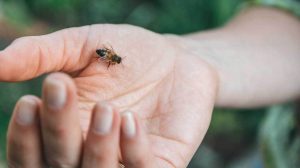
With summer in full swing and the temperature rising, we all find ourselves spending more time outdoors making the most of it with barbecues, days at the beach or the park and generally being more active. In the summer, we also see a higher level of activity from insects such as wasps and bees – that are attracted to sweet smells (such as alcohol), food and plants. This perfect combination can sometimes lead to insects getting a little too close to us, and biting or stinging us as a defensive response.
This week’s blog has some handy tips on how to diagnose and deal with a variety of bites and stings that might happen when you’re out and about, so you can be prepared in the situation.
Wasp and Hornet Stings
Most cases of wasp and hornet stings cause a sharp and sudden pain in the first instance, which can be followed by a red mark on the area and swelling. In some cases this can last up to a week, but often will subside within a day or so.
Bee Stings
Bee stings are very much like wasp and hornet stings, but Bees often lose their stingers in the process which can remain in a person’s skin.
Mosquito Bites
Mosquito bites appear as small red patches on the skin, which can be very itchy. In some extreme cases blisters can also develop.
Tick Bites
Tick bites don’t tend to cause pain, so they can be difficult to notice right away. Symptoms of a tick bite include a small red lump on the skin, swelling, Itchiness, blistering and bruising. Ticks attach themselves to a human to feed on blood, so these would need to be removed like bee stings.
Horsefly Bite
A horsefly bite can cause significant pain, mostly appears as a large raised rash and can bring other worrying symptoms such as dizziness, weakness, wheezing and swelling to parts of the body.
Treatment of stings and bites
In most cases, bites and stings do not require medical attention and can be treated as follows:
- Bee stings and ticks will need to be removed. Bee stings should be scared out of the skin with a hard edge such as your fingernail or a bank card. Ticks can be removed carefully with tweezers
- Wash the affected area with water and soap
- Apply a cold compress or an ice pack to the skin for at least 10 minutes.
- To reduce swelling, the affected area should be raised if possible.
- Avoid scratching or itching the affected area to reduce the risk of infection
If symptoms persist or get worse, it could be worth giving 111 a ring and explaining the situation for some advice and guidance.
In extreme cases, a sting can cause a severe allergic reaction and lead to anaphylactic shock. If you notice the person has the following symptoms, you must call 999 immediately.
- wheezing or difficulty breathing
- a swollen face, mouth or throat
- nausea or vomiting
- a fast heart rate
- dizziness or feeling faint
- difficulty swallowing
- loss of consciousness
If the person is know to have an allergy to stings, they may have an Adrenaline Auto Injector (such as an EpiPen) in their possession which could be used to relieve the symptoms of anaphylactic shock. Make sure you know how to use the particular injector before attempting to administer it.
You should remove a sting if applicable to stop the venom spreading, and lay the person down flat unless they are pregnant, unconscious or having breathing difficulties. If symptoms persist after 5-15 minutes, and there is another injector available, you should use this whilst waiting for the emergency services to arrive.
————
If you would like to know more about treating someone in an emergency situation such as anaphylactic shock, Ajuda offer courses on first aid on-site at our training centre or at a location of your choice. You can choose between paediatric, emergency or work-based first aid depending on your training requirements.
Overheating Kills: Tips for elderly care in hot weather.
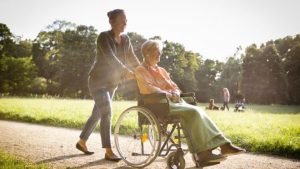
Although we all love the warm weather, after a few days of non-stop stuffiness and sweating, it can become uncomfortable, and even more so for elderly people.
In times of extreme heat, it’s important to check in on your elderly family, friends and neighbours regularly to make sure they are safe and well. As we age, our bodies find it more difficult to adjust to changes in condition, this along with other age-related illnesses and various medications can affect our ability to cool down. During heatwaves, we often see an increase of heat related illnesses and even heat-related deaths if it becomes too extreme.
If you are caring for an elderly person this summer, take a look at our blog to refresh yourself on some of the ways you can prevent the heat from making them unwell and spot any issues early on.
Tips for keeping cool.
- The hottest time of the day is between 11am – 3pm, so advise them to avoid spending time outside during this period
- Encourage them to drink cold drinks regularly. Make sure the fridge is stocked up with plenty of fluids.
- Suggest they avoid much physical activity unless necessary, but if they would like to keep active or go outside encourage this to be done in the evening.
- In extreme heat, windows and blinds can be closed to keep a room cool
- Loose and cool clothing will help to avoid overheating
- If they are uncomfortable, having a cool bath or shower can help
- Discourage drinking caffeine and alcohol as these can cause dehydration
Signs of Overheating
- Breathlessness
- Sudden dizziness
- Chest Pain
- Confusion
- Cramps
- Fatigue
- Cold, clammy skin
- Headache
- Thirst
To treat the initial signs of overheating, the tips above such as a cool area, cold bath and rehydration should be followed to attempt to naturally cool the person down. If not treated, overheating can turn to heatstroke.
Heatstroke Symptoms
- Fainting or feeling faint
- High body temperature
- Strong, rapid pulse or slow, weak pulse
- Behavioural changes
- Staggering
- Lack of sweating in extreme heat
- Dry Skin
- Confusion
- Coma
If you notice any of the above symptoms, call the emergency services immediately for help as there are medical measures that can be taken to relieve the symptoms of heatstroke.
If you would like to refresh your knowledge on some key topics surrounding elderly care, Ajuda have a variety of online Health & Social Care courses to develop awareness of Strokes, Diabetes, Dementia and Mental Health. Along with this we also cover topics such as Duty of Care, Fire Safety, End of Life Care and Safe Handling of Medicines.
These courses are a quick and inexpensive way to refresh your knowledge on key caring topics, and ensure you are prepared to save lives in any situation. They can be done at your own pace, from the comfort of your home.
If you would like to know more about enrolling onto any of our online courses, please contact the office today.
Asthma Attacks and how to tackle them
What to do during Asthma Attacks
Asthma is a condition that affects the airways of the lungs. Asthma can cause the lungs to go into spasm and tighten which can make it very difficult to breathe for someone who is having an Attack. There are many factors that can trigger Asthma Attacks; the weather, allergies, over exertion, illness and stress to name but a few.
3 people die every day in the UK from fatal Asthma Attacks; these could potentially be avoided if people understood more about the condition. Every 10 seconds someone has a potentially life-threatening asthma attack.
What are the symptoms of Asthma Attacks?
-Tight chest
-Difficulty breathing
-Wheezing
-Coughing
-Distress
-Struggling to speak, sleep or eat
-Children can sometimes complain of a tummy ache
Usually, these symptoms will not occur suddenly.
What do you do when Asthma Attacks occur?
-Stay calm, panicking will only make things worse.
-Make them comfortable
-Ask them to use their reliever inhaler
-Reassure them
-Encourage slow and steady breathing
-If the casualty shows no sign of improvement or the casualty does not have their inhaler with them, call 999 or 112
If you think you are having an asthma attack and you are alone, take the above steps. Take slow and steady breaths and try to remain calm. If your symptoms do not improve, do not hesitate to call 999 or 112.
Advice for friends and family
It is very important that friends and family of Asthma sufferers know how they can help during an emergency.
If you have a personal Asthma action plan, it is useful to make copies and share it with people that are you are often with so that they have something to refer back to during an emergency.
If you are interested in learning how to help in emergency medical situations, please get in touch with our team about booking yourself a space on one of our first aid training courses. Contact us on admin @ajuda.org.uk or call 029 2057 6883.
Type 2 Diabetes Prevention Week
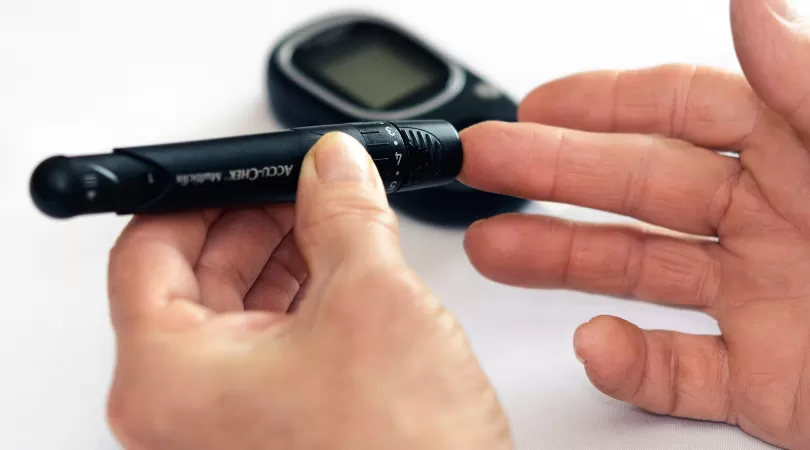
Type 2 Diabetes Prevention Week is taking place from Monday 23rd May to Sunday 29th May this year. Diabetes UK joins NHS England as proud campaign partners for this annual awareness week.
For this year’s Prevention Week campaign, NHS England has created a digital toolkit which includes everything you need to support the week digitally, including social media posts, animations, web banners and more.
There are 13.6 million people in the UK at increased risk of developing type 2 diabetes. But for many people there are steps you can take to reduce your risk.
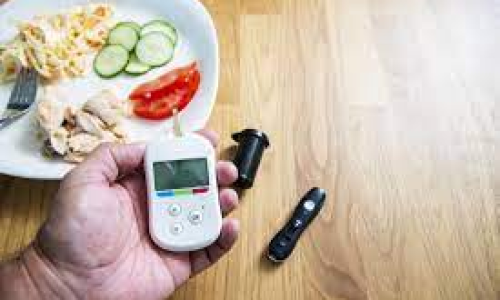
Ajuda is a proud sponsor of The Mental Health & Wellbeing Show May 17th 2024

A professional all-day show on the 17th May 2024. This year you will find us at Cardiff City Football Stadium aiming to promote positive mental health through open conversation, promoting awareness and sharing real-life experiences.
The show will include a selection of seminars focused on topics such as coping with mental illness, ways to promote positive mental health, and how to support people around you who are suffering with ill mental health. Alongside this is an exhibition with over 60 charities, organisations and companies promoting their helpful resources, services and initiatives designed to support positive mental health and wellbeing.
Adult Services, Schools, GPs, NHS Staff, CAMHS, Housing Associations, Charities, Youth Clubs, Staff in Residential Housing for Children and Mental Health, Foster Carers, Rehabilitation Centres, Colleges, Police Services, Sports Clubs, Spiritual and Holistic Therapists and many more!
Experiencing and living with mental health conditions including; Depression, Anxiety Disorders, PTSD, OCD, Post Natal Depression, Psychosis, Suicidal Thoughts. Mental Health recovery and journey, Mental Health in the workplace, school, college, university. Overcoming Eating Disorders, Addiction, Self Harm. The advantages of mindfulness, holistic therapies, meditation, sports and activities, arts and creative therapies. Living with Autism. The connection of diet & nutrition and mental health, The LGBTIQ+ community, The Role of the Mental Health First Aider in the Workplace, The Role of the Mental Health Lead in Schools. Psychological treatments. Experiencing loss, Peer support, Student life, Homelessness, Disability, Reducing stress and many more
This event is proudly sponsored and supported by Ajuda
Bonfire Night First Aid

This weekend Bonfire Night will be celebrated around the UK. According to statistics from The Royal Society for the Prevention of Accidents around 1,000 people visit A&E for treatment of firework related and other bonfire night related injuries in the four weeks around the event.
Although Bonfire Night is certainly a time for fun, we’ve written this blog to provide first aid tips that are simple to learn and well help you to be prepared to treat any of these injuries if they occur.
Burns or scalds
– Run the burn under cold water for at least 10 minutes. Skin needs to be completely cool to prevent pain, scarring or any further damage.
– Remove any jewellery or clothing that is near the burn – do not remove if they are stuck to the burn.
– Don’t pop any blisters or apply creams – doing this risks making the injury worse.
– One the burn is cooled, cover with a plastic bag or clingfilm.
– If necessary, treat a casualty for shock by laying them down with their legs raised above the level of their heart e.g. on a chair.
– If the burn is on a child, or, if you think the burn is serious (e.g. deep, larger than the size of the casualty’s hand, on the hands, feet or face) call 999/112 for an ambulance. There will also be first aiders at almost all public firework displays in the UK so keep an eye out when you get to the event in case you need to go and get help.
Debris in the eye
– Do not rub the casualty’s eye or let them rub the eye as it will make it worse.
– Pour clean water over the eye to wash out what is in it or to cool the burn.
– If this does not work, try to lift the debris out with the damp corner of a clean tissue.
– If this also does not work, cover the eye with a clean dressing (if a dressing is not available make sure you use a non-fluffy material).
– Take the casualty to the nearest hospital.
Smoke inhalation
– Move as far as possible away from the smoke so that you/they can breathe in fresh air.
– Sit down or help the casualty to sit down in a comfortable position and loosen any tight clothing around the neck to help breathe normally.
– If you/they do not recover quickly, call 999/112 for an ambulance.
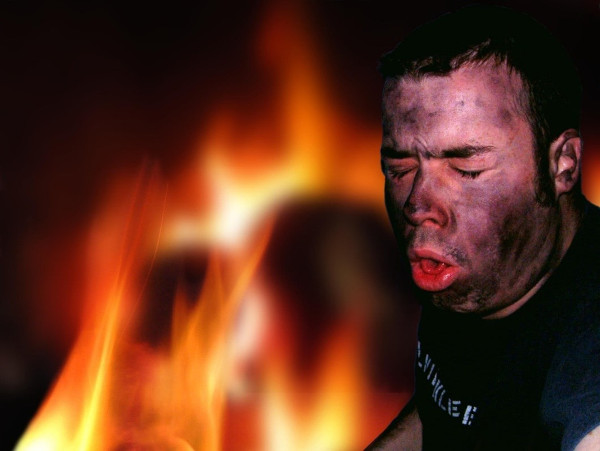
We hope you all enjoy bonfire night and remain safe throughout. Let us know your plans by tweeting us @ajuda_training we’d love to hear what you’re all up to!
Cardiff-based training company boosted by major new business wins

A Cardiff-based training company is going from strength to strength after securing contracts to provide services to some major organisations.
Ajuda Training Academy, which operates out of its education centre in Cardiff Bay, is a multi-award-winning company which delivers fully accredited vocational courses and qualifications to private companies and public sector organisations across the UK.
Ajuda’s suite of training courses includes, amongst others, first aid and mental health training, manual handling, health and safety, food hygiene, fire safety, and safeguarding.
The company’s latest client wins have seen it become the official first aid training provider for the Welsh Government, while also winning competitive tenders to provide first aid training to both Natural Resources Wales (NRW) and Cardiff Council.
In its 14 years of operation, Ajuda has delivered training to more than 90,000 people across England and Wales, providing them with fully accredited qualifications in a variety of vocational courses.
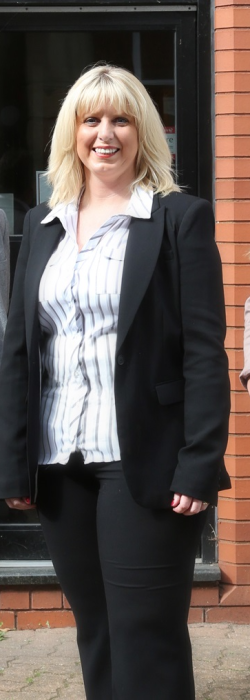
Dawn Evans
Dawn Evans, who is Ajuda’s managing director, said the new contracts have shown the company is among the country’s leading providers of training services.
“Over the years that Ajuda has been operating, we have become synonymous with quality, excellence, value, and attention to detail, attributes which have been recognised by the Welsh Government, NRW, and Cardiff Council,” Mrs Evans said.
“I am incredibly proud to have secured these contracts, and delighted that the three public bodies have recognised Ajuda’s excellence and will be able to access training of the highest calibre from our dedicated team.”
Mrs Evans added that the contract wins also help to highlight Ajuda’s innovative approach to training,
“In all of our courses we aim to make a difference and inspire others to do the same,” Mrs Evans added.
“The training is focused on each organisation’s individual requirements, using everyday scenarios, and a range of audio, visual, and kinaesthetic aids, to provide a wider understanding of the learning on offer.
“Our courses, which can be delivered through the Welsh language, are regulated by awarding bodies such as OFQUAL and Qualifications Wales, and our professional trainers have a wealth of knowledge within their individual fields, alongside formal teaching qualifications. The team at Ajuda is also proud to be recognised with the Investors in People Award.”
